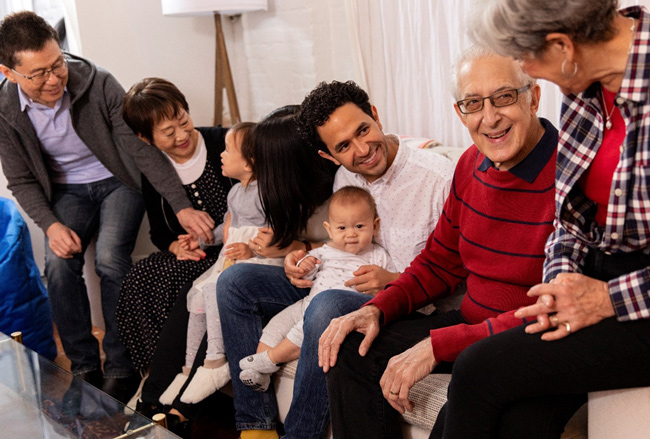
“Remember the days of long ago; think about the generations past. Ask your parents, and they will inform you. Inquire of your elders, and they will tell you.”
(Deuteronomy 32:7)
There’s much to learn from the stories of those who came before us, and we carry that knowledge with us into the future. That’s exactly how the Jewish people have survived and thrived over thousands of years. It’s also why preserving and sharing memories is such a vital and key tenet of our cultural and religious practices.
In Judaism, we mark a yahrzeit (the anniversary of a death) every year so that we continue to honor the memory of someone’s life. During certain times of the year, like Yom Kippur, a special service called the yizkor is held to honor and remember people who have died. (Learn more about this service in the video below):
Every year on Yom HaShoah, Holocaust Memorial Day, we remember those killed during the Holocaust (Shoah in Hebrew) and preserve the legacy of survivors. We tell their stories, share their family histories, and honor their memories so that no one ever forgets the horrific events of the Shoah which took so many lives from the vibrant Jewish community and others.
This generation of PJ Library families — parents and children — get to write the next chapter of the Jewish story. To do so, we need to know about the people and events that got us here, learning from the wider Jewish history as well as our own families’ pages in it.
Here you’ll find a wealth of information, questions to prompt meaningful discussion, stories, activities, and more to help your family share and preserve these memories.
Learn
One key Jewish value is the importance of passing down our people’s traditions, stories, and ideas “l’dor v’dor,” Hebrew for “from generation to generation.” We’re commanded to share this knowledge with children so they can carry these family treasures forward. When generations are connected, wisdom flows along one’s family tree.
This continuity is why we value the wisdom of past generations, from our ancient ancestors to the older relatives we’ve known. Treating everyone with respect is a building block of Jewish life, but when we practice the value of, kibud zekaynim, honoring elders. We show reverence to those who built the life we have today.
What can you learn from those who came before you?
Discuss
- What would you like to pass on to the next generation?
- How do you connect to the past?
- Where does your name come from?
- Were you named for someone special?
- Is there a story behind how you came to have that name?
Listen
Enjoy several episodes of PJ Library’s award-winning podcast, Afternoons With Mimi, that discuss family traditions and history.
Read
Do
Discover (or create!) the story behind a family heirloom:
- Find something in your house that once belonged to an older relative or person special to you.
- What does that object tell you about your history?
- Think about how it came to be in your home.
- Is it from a place your ancestors used to live? If you’re not sure of the details, can you ask an older relative?
- Record the object’s history in your own words or in pictures and make sure to include what it now means to you. Who knows, your account might become a family heirloom too!
TIP: Can’t find anything from an older relative or family friend in your home? Pick something that’s special to you and write a story for some future descendant telling them what’s important about it.
More
Build Your Family Tree and Family Story
How to Keep in Touch With Grandparents
What is L’Dor V’Dor?
April 7, 2025